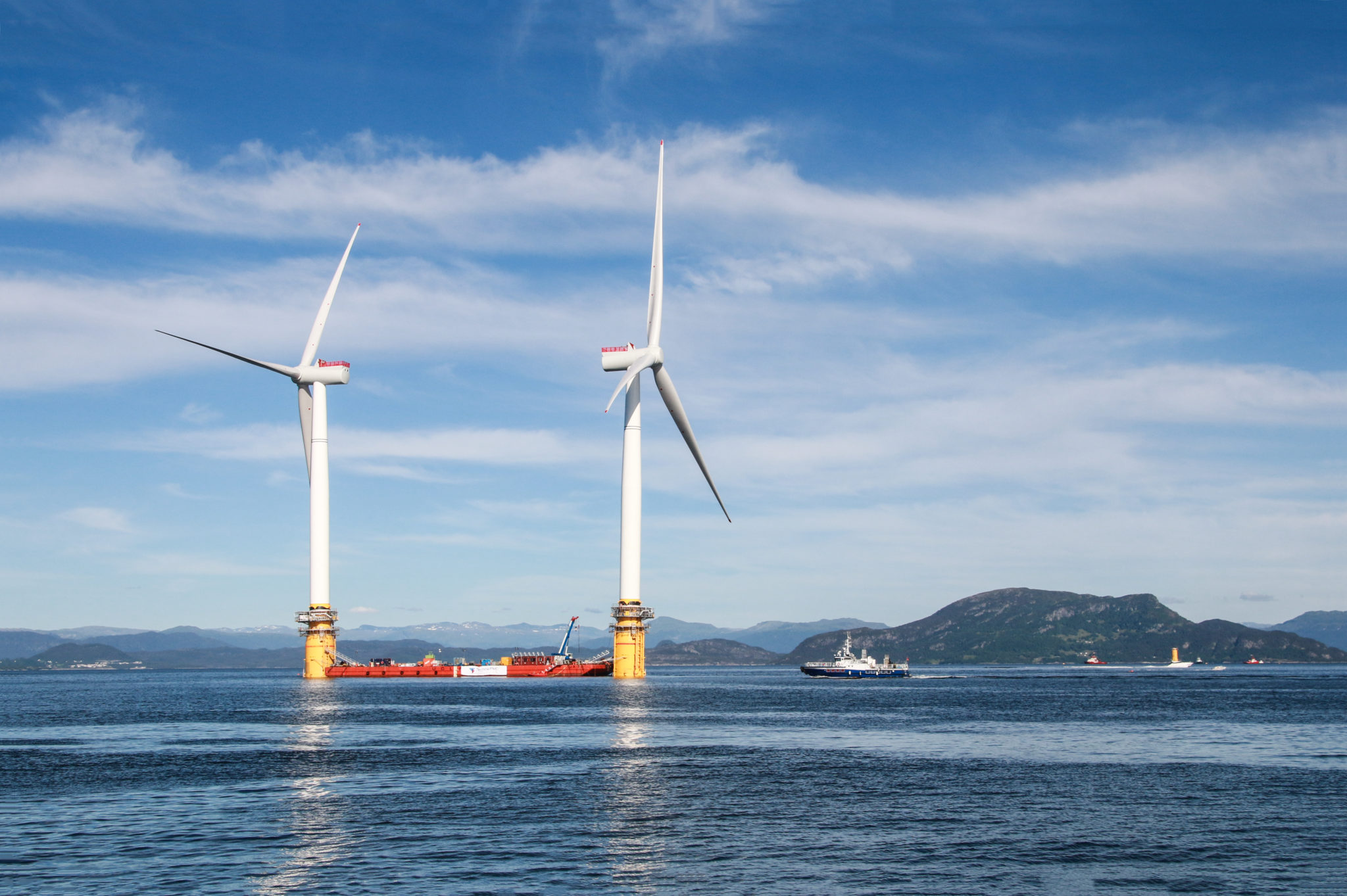The Energy Transition | £58 billion investment needed for net zero grid by 2035
Published on 25th March 2024
Welcome to our top picks of the latest energy regulatory and market developments in the UK's transition to net zero.

This week we look at the call for a £58 billion investment to support decarbonisation by 2035, the government's response to the consultation on introducing a CfD Sustainable Industry Reward, Ofgem requirements for landowner consents to speed up grid connections, and more.
ESO publishes "Beyond 2030": a £58bn energy system investment plan
The Electricity System Operator (ESO) has published its "Beyond 2030" report which provides a "national blueprint" for decarbonisation and proposes a £58 billion investment in the UK electricity grid to meet the demands of decarbonisation by 2035.
The report outlines the increasing electricity demands in Great Britain, which are predicted to rise by up to nearly 65% by 2035. The report also notes that investment in energy generation has exceeded investment in transmission capacity, resulting in bottlenecks on the electricity network. This has resulted in occasions where wind farms have had to be switched off to prevent the grid being overloaded, resulting in wasted energy.
The ESO sets out the potential for the connection of an additional 21GW of offshore wind, taking potential offshore wind generation to 86GW by 2035 and enabling Great Britain to have the single largest offshore wind fleet in Europe. To facilitate this, the ESO recommends laying substantial amounts of undersea cabling: over three times as much when compared with new onshore routes. There is also the need for reinforcement from North East Scotland to North West England, potentially forming a new "arterial transmission route", and to enhance the capacity between the east and west coast of England.
The report further highlights that designing a comprehensive electricity network goes beyond simply constructing more infrastructure. ESO engineers will work to find innovative solutions to ensure that the system is designed in a secure and affordable way. Additionally, areas of strategic importance where large-scale demand users can be located are identified in the report, offering an alternative to additional infrastructure development.
The need for a strategic and flexible approach to address increasing energy needs is emphasised by the ESO. Various future solutions are considered, such as a spatial energy plan and reforms to the wholesale electricity market. The also report emphasises the importance of ongoing design innovation and engagement with communities and industry throughout the consenting process.
Government responds to consultation on introducing a CfD Sustainable Industry Reward
The Department for Energy Security and Net Zero (DESNZ) last week published its response to a consultation on its Contracts for Difference Sustainable Industry Reward (CfD SIR) proposals. The proposals aim to facilitate the deployment of renewable electricity generation, particularly offshore wind and floating offshore wind, by incentivising low carbon schemes that accord with DESNZ's criteria.
In its response, DESNZ has said that it will continue with its plans for a competitive SIR auction process amid concerns of over-compensation at the SIR stage affecting the CfD auction process. The SIR auction process will run six months before the main CfD auction, and it is due to be introduced from CfD Allocation Round 7 (AR7) onwards.
To address concerns raised in the consultation and given the shortened timeframe for the introduction of the proposals, DESNZ has opted for a lighter-touch approach to the SIR application process for AR7; reducing the number of qualifying criteria down to two, and the number of questions down to three.
The proposed criteria for the SIR auction for AR7 will be:
- investment in shortening supply chains, in deprived areas in the UK; or
- investment in more sustainable means of production, anywhere in the world; or
- or a combination of both approaches, by investing in shorter supply chains in deprived areas of the UK and ensuring such investment goes to more sustainable means of production.
DESNZ expects that there are likely to be more extended criteria for SIRs awarded prior to Allocation Round 8 and Allocation Round 9 which are anticipated to be the final rounds operating in conjunction with SIR allocation. After this point, DESNZ predicts the fixed bottom and floating offshore wind industry to have "re-established itself on a more sustainable footing".
Alongside this response, the government has published a draft CfD SIR allocation framework which outlines benchmark standard values for SIR applications and procedural requirements for SIR applicants and the Secretary of State.
Ofgem to introduce requirement for landowner consent to speed up grid connections
In a recent Connection and Use of System Code (CUSC) modification, Ofgem has confirmed that developers will be required to inform landowners that they intend to apply to the ESO to build wind, solar generation, or energy storage infrastructure on their property. Developers must also obtain a Letter of Authority from landowners to the proposals before applying for a connection agreement.
The new requirement implements a proposal put forward by the ESO in December of last year, and will prevent applicants from submitting early connection applications where the projects are speculative or have not yet secured landowner approval. In introducing this barrier to securing a connection contract, Ofgem hopes to avoid other, viable projects that are ready to proceed to connection being held up in the connections queue.
Ofgem has reported an increasing number of connection applications over the past year amid a period of increasing grid demand and constraints. The size of the queue and the rate of new applications has led to an average delay of over five years for projects applying to connect to the transmission system. The delay to connections then has a compounding effect, leading to additional delays as applicants become more inclined to submit their applications early to account for a later connection offer date. That delay is then exacerbated where a lack of landowner approval slows down matters.
The proposals will come into effect on 28 March.
Government unveils planning reforms to fast-track qualifying infrastructure projects
The government has published the outcome of a consultation on operational reforms to the Nationally Significant Infrastructure Projects (NSIPs) consenting process. The reforms announced by the government seek to achieve an NSIP consenting process that is "faster, greener, fairer and more resilient by 2025" and most notably, detail a re-invented pre-application service that offers applicants the option to pay for a fast-tracked decision.
NSIPs are large scale developments, including energy projects, that obtain planning consent through Development Consent Orders granted by the Secretary of State. Due to delays in the planning process, NSIP applications are taking over four years on average to be processed. Under the reforms a tiered system will be introduced, allowing applicants to subscribe to either a "Basic", "Standard" and "Enhanced" service at the pre-application stage. The fast-tracked consent route will form part of the "Enhanced" service, and will seek to prevent the delay of major projects with a target timescale of 12 months from acceptance of the application to the decision.
Developers should be aware, however, that this route will not be available to all NSIPs as projects will be subject to suitability requirements and a quality standard. Further details on the fast-track route are to follow, with the government confirming the publication of new guidance next month.
Government allocates funding for AI innovators
The government has allocated funding to eight UK AI innovators to develop technologies to cut carbon emissions and accelerate the transition to clean energy.
The government backing forms part of the Artificial Intelligent (AI) for Decarbonisation Innovation Programme announced at the end of 2022 and is part of the £1bn Net Zero Innovation Portfolio.
The funding will be split across three sections: the generation and distribution of electricity, transport decarbonisation and land use for renewables generation.
The government has allocated the £1.73 million to projects with varied focuses including improving weather forecasting for solar energy, enhancing energy efficiency in buildings, optimising energy use in transportation, and identifying land use for renewables generation.
The Carbon Laces Solutions Ltd project received the most funding (£342,999) for the development of smart technologies to learn and adjust the use of electricity in homes, improving grid efficiency and helping people reduce their energy costs.
EDF Energy R&D UK Centre Ltd will receive £23,586 to develop a use for AI to determine the positioning of wind turbines in relation to each other to reduce the space needed for offshore windfarms whilst continuing to produce efficient energy output.
This article was written with the assistance of Luke Hopper, Jessica Sawford, Charlotte D'Arcy, Hannah Bradley and Khushal Thobhani, trainee solicitors.




